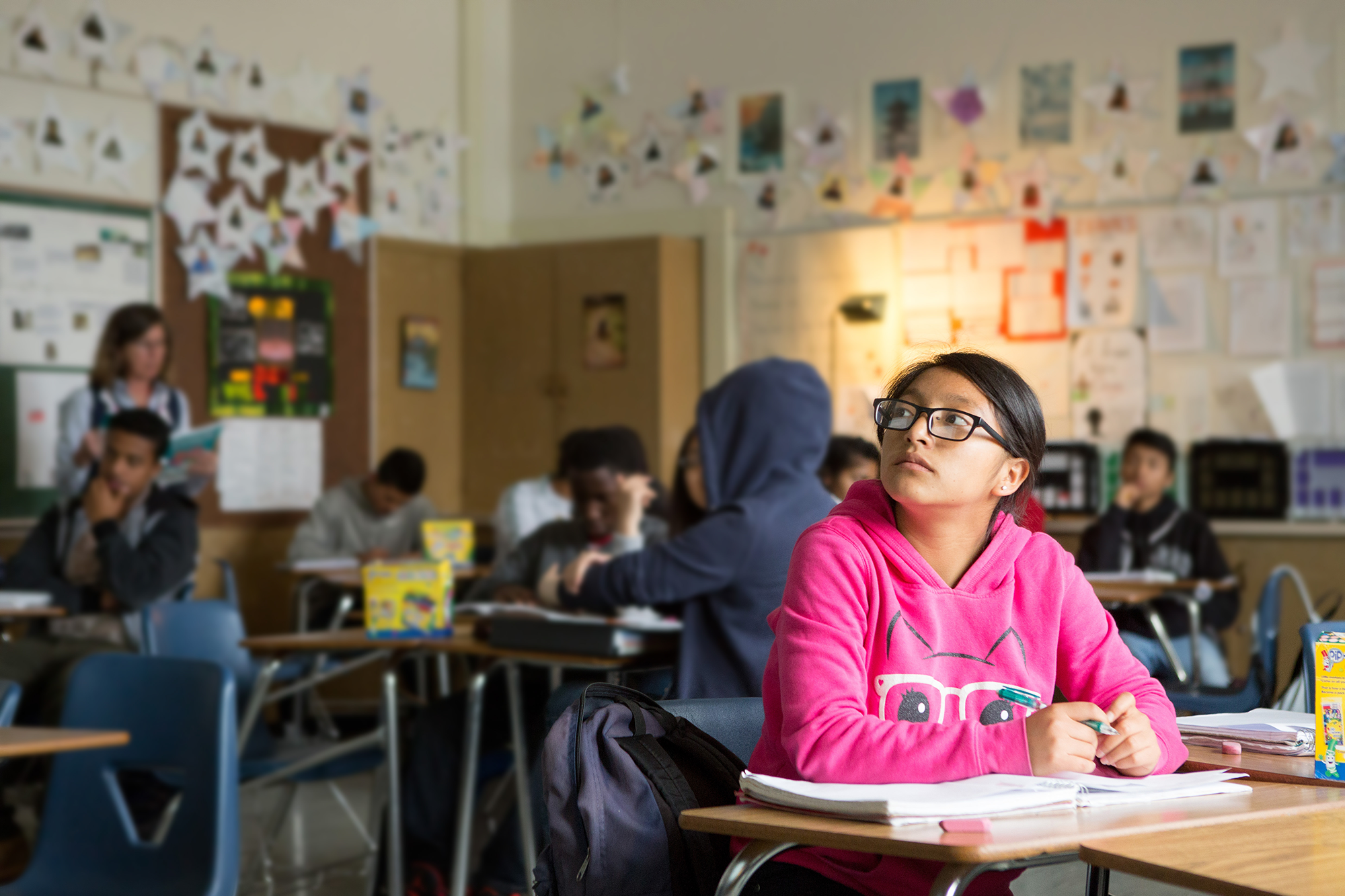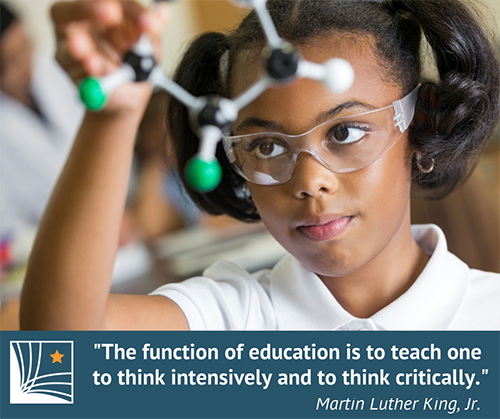Why all students deserve an education that teaches them to think critically

 As we celebrate Dr. Martin Luther King Jr.’s life and reflect on his accomplishments, it’s hard to ignore the importance that he placed on education as a way to better one’s life – and one’s society.
As we celebrate Dr. Martin Luther King Jr.’s life and reflect on his accomplishments, it’s hard to ignore the importance that he placed on education as a way to better one’s life – and one’s society.
It’s even harder to ignore the persistent gaps in achievement that continue to separate low-income students and students of color from their white peers. These groups of students have made slow, but steady, progress on the National Assessment of Educational Progress over the last two decades. But we can – and must – do better to ensure that these students leave high school prepared for their futures.
That’s where high, comparable standards come in.
In 2014, The Education Trust found that, among African American students with high potential for success in AP math courses, only 3 in 10 took any such course. Part of this is because 15 percent of African American high school students attend schools that don’t offer at least one AP course in each of the four core subjects: math, English, science, and social studies. Instead of relying solely on advanced courses to prepare our students for college or a career, high standards – like the Common Core – ask more of all students and ensure they are on a path to graduate from high school college and career ready.
What happens when we don’t teach students to these high standards? A Center for American Progress report released last week found that many states that have not fully embraced standards-based reform have fallen behind in educating low-income students, while states that have thoughtfully pushed higher standards have shown clear gains. To put it plainly, states that have implemented Common Core saw greater learning gains for their low-income students than states that have not.
High, consistent standards – when faithfully implemented – give students the tools they need to think critically and succeed in college, career, or whatever else they choose to pursue. And after all, isn’t that the purpose of education?
Blair Mann
Collaborative for Student Success
About the Collaborative for Student Success
At our core, we believe leaders at all levels have a role to play in ensuring success for K-12 students. From ensuring schools and teachers are equipped with the best materials to spotlighting the innovative and bold ways federal recovery dollars are being used to drive needed changes, the Collaborative for Student Success aims to inform and amplify policies making a difference for students and families.
To recover from the most disruptive event in the history of American public schools, states and districts are leveraging unprecedented resources to make sure classrooms are safe for learning, providing students and teachers with the high-quality instructional materials they deserve, and are rethinking how best to measure learning so supports are targeted where they’re needed most.


